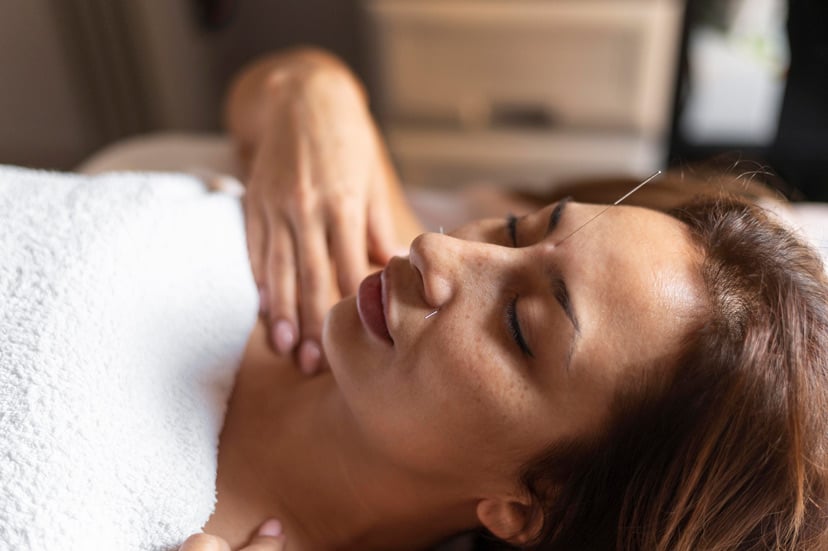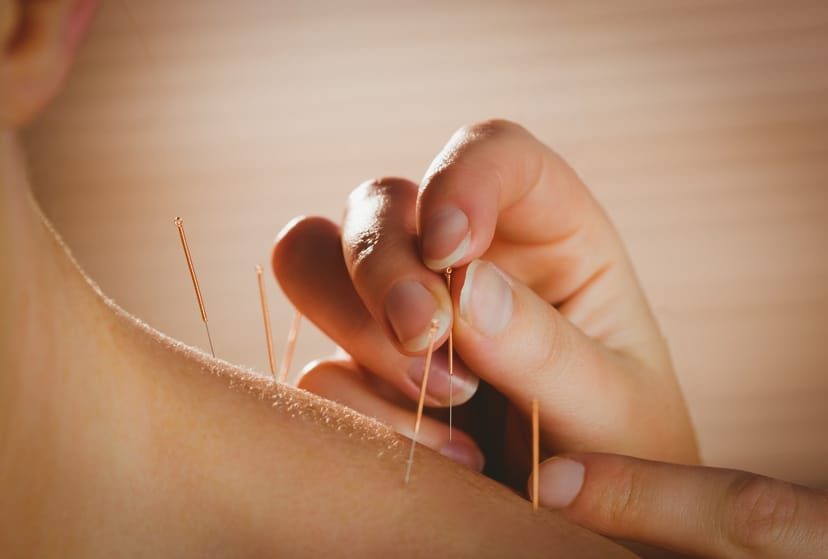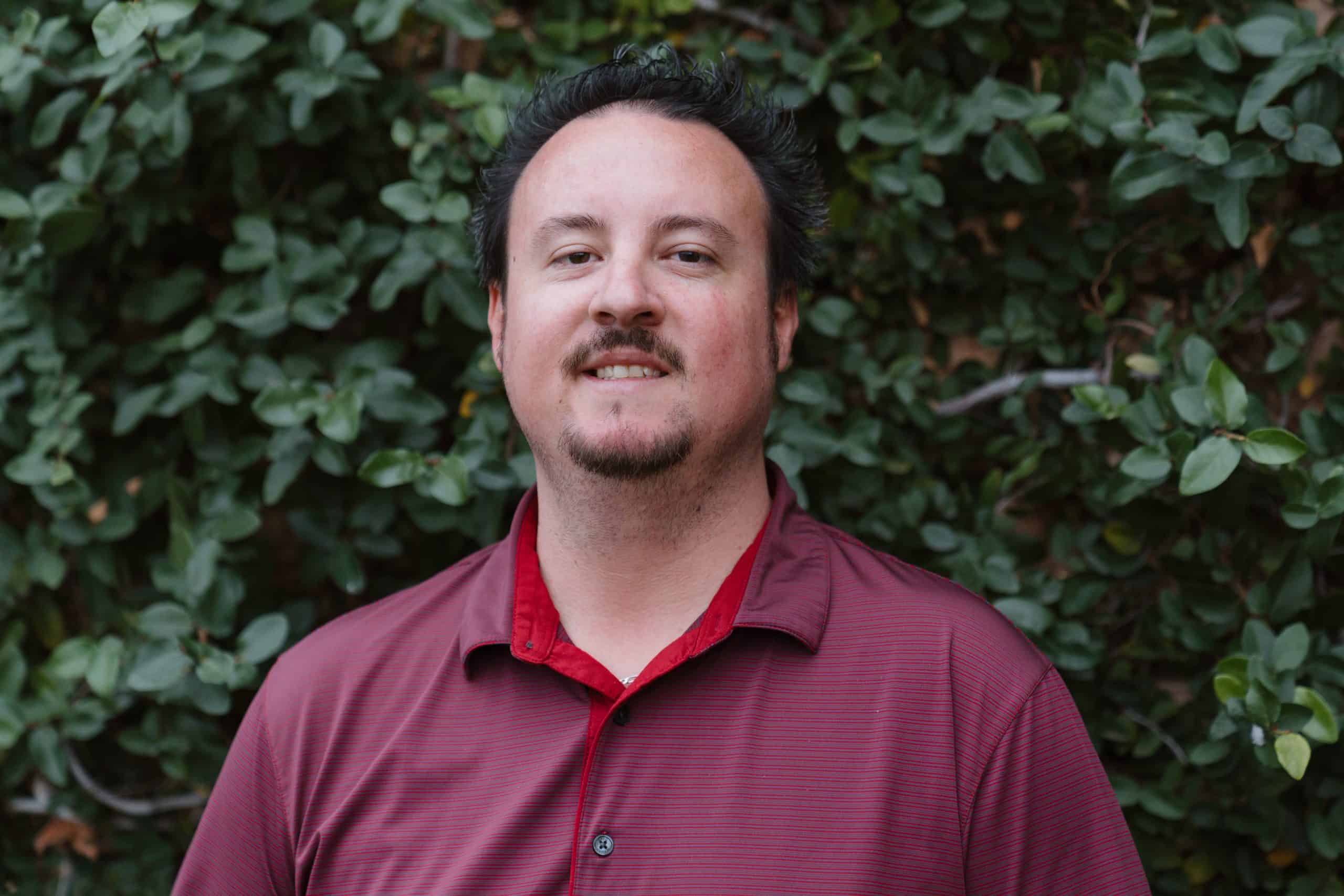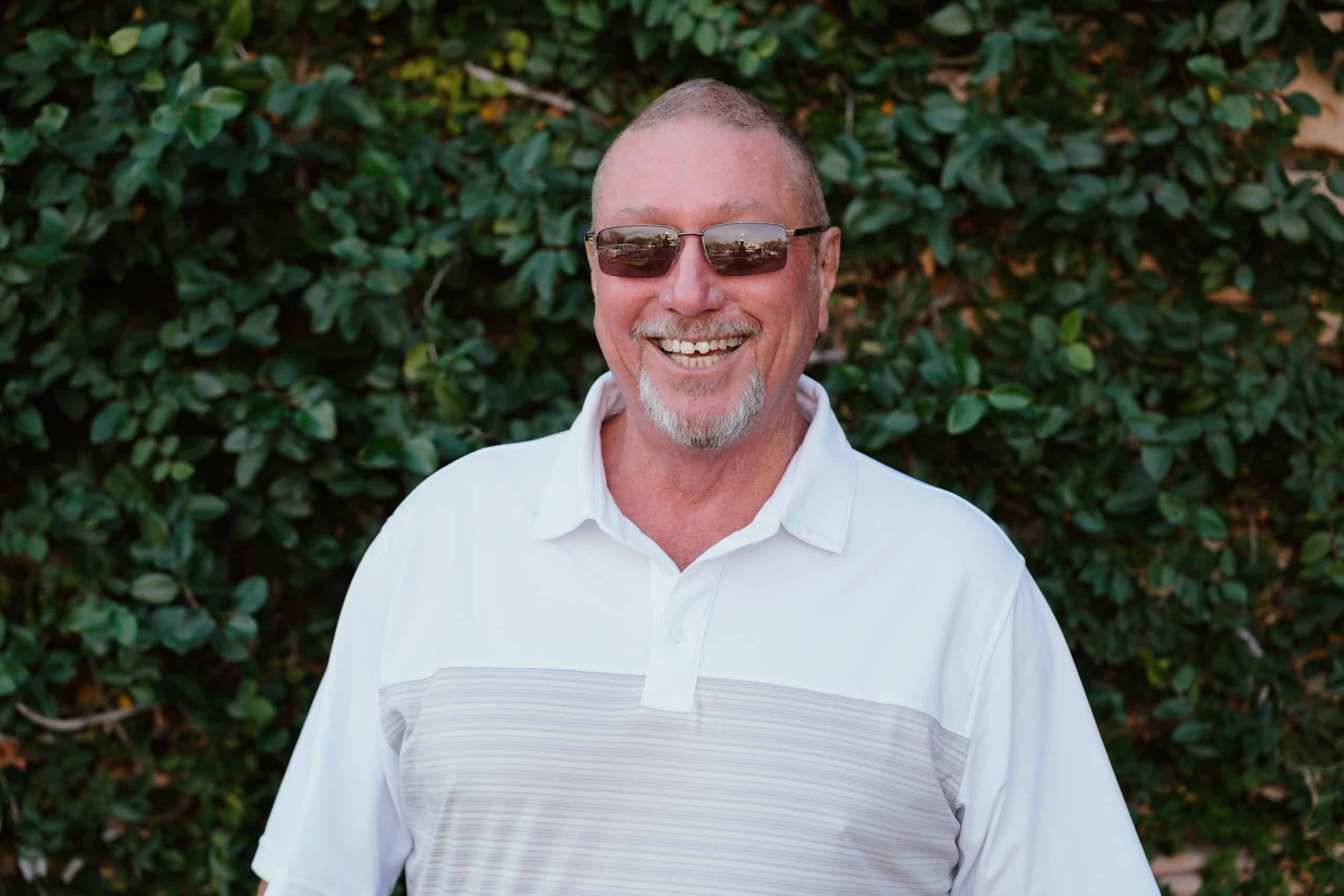Acupuncture Therapy in Arizona

Acupuncture therapy is immediately recognizable to most people by the tell-tale placement of needles all over the body. The promise of being stuck by hundreds of needs can be off-putting and even scary for people who have not experienced acupuncture therapy.
That being said, acupuncture has been used for hundreds of years as a therapeutic option for a variety of conditions. As such, it is vital that you understand what acupuncture therapy is before determining whether it can help you along your journey to a healthy life.
What is Acupuncture Therapy
Acupuncture therapy is the practice of inserting very thin, solid, steel needles into strategic points across the body in order to stimulate those points, relieve pain, or reduce symptoms of other conditions. The needles that acupuncturists use are much thinner than those used in vaccinations or piercing. These needles are inserted between one fourth to a half of an inch deep into the skin and left there until the end of the treatment session. There are some acupuncturists that will stimulate the punctured skin, or even apply light electric stimulation to the needles as a part of their therapy. Originally a traditional Chinese medical practice, acupuncture has been adopted and adapted across various other cultures to be used in various healing practices.
You're not alone in this. In 2023, over 600,000 Arizona residents had a co-occuring substance use disorder and mental health condition.
Are There Different Types Of Acupuncture Therapy
Yes. Acupuncture originated a Chinese medical practice more than 3,000 years ago, eventually leading to the development of variations including Japanese acupuncture, Western acupuncture, as well as styles that are based off of the areas of the body being needled like auricular (ear) acupuncture and scalp acupuncture.
All styles of acupuncture vary slightly in focus and practice, but they all center around the practice of needle insertion. When looking into acupuncture it is important to understand which type of acupuncture you will be receiving.
Chinese Acupuncture
Chinese acupuncture is the most common type of acupuncture used. Also called “traditional acupuncture,” Chinese acupuncture is based on the idea that people have energy flowing through their body that may become unbalanced, causing pains, illness, and ill fortunes. In traditional Chinese acupuncture, it is believed that by inserting needles into vital points on the body that these energies can be balanced, relieving symptoms for a variety of conditions.
Japanese Acupuncture
Japanese acupuncture is a minimalist approach to acupuncture. The needles used in Japanese acupuncture are smaller than those in traditional Chinese acupuncture and very few of them are actually placed. Instead, a Japanese acupuncturist will focus on finding the most important and effective points to place needles, and focus their attention on those few spots. Japanese acupuncture also focuses on balance as a way of relieving unwanted symptoms.
Western Acupuncture
Western acupuncture is identical to traditional Chinese acupuncture except instead of believing in the balancing of energies, Western acupuncturists place their needles in a way that it is believed to stimulate certain nerves in order to provide relief.
Auricular Acupuncture
Auricular is the practice of placing a few needles directly on, in, or behind the ears. To immediately put your mind at ease, the needles in this practice never come close to the vital organs of the inner ear. When we say “in the ear” the needles are only placed in the outermost portions of the ear. This is done to alleviate mental distress, allergies, and headaches.
Scalp Acupuncture
Scalp acupuncture, as the name suggests, is focused on placing needles into the skin of the scalp. (Yes, this can be done on people with full heads of hair.) In this approach needles are placed in order to relieve headaches, migraines, motor impairment, bodily pain, and even spinal issues.
There are other, less common, forms of acupuncture that are available. Some are different in their core belief systems and others differ in the body parts that they focus on. It is important to research and understand the kind of acupuncture you are getting in order to know which form may be the most beneficial in helping you achieve your treatment goals.
How Does Acupuncture Therapy Affect The Body
Before you throw away your medications or cutting off treatment with your doctor in favor of acupuncture, it is important to understand that acupuncture is a complementary therapy that should always be used alongside other forms of medical intervention, especially if the conditions being addressed have a significant impact on your daily life
In traditional Chinese acupuncture, it is believed that acupuncture relieves negative symptoms by unblocking energy paths and restoring the flow of a person's energies. While the belief in “energies” has yet to be scientifically founded, there is research showing that the practice of Chinese acupuncture was on to something, even if they did not describe it in the same way as modern science.
Our expert clinicians will show you the power of our evidence-based treatment.
Learn more by giving us a call today.
In a 2017 study on acupuncture, it was found that acupuncture functions, in part, by placing needles into key sites that affect multiple sensory motor neurons, forcing these neurons to be simulated by the insertion of the needles. The study suggested that by placing the needles at these sites as a point of stimulation, the central nervous system was engaged and responded to the painless needles as though there was pain. This pain response then offered relief to the other pains that the person was already experiencing. Beyond pain management, acupuncture also showed to increase blood flow to the treated parts of the body - potentially stimulating a stronger healing process.
With this study in mind, it must be understood though that while acupuncture is recognized by some of the medical community, there are still some in the field that doubt its effectiveness.
For many years, the greater medical community assumed that much of the benefits of acupuncture were caused by the placebo effect (experiencing a real response to a fake stimuli.) That being said, in a meta-analysis on acupuncture’s effectiveness in treating chronic pain, acupuncture was found to be more effective in addressing chronic pain than a “fake” acupuncture procedure. This results potentially shows that acupuncture is more effective than the placebo effect, potentially helping relieve pain and other symptoms.
Many people experience a reduction of pain, and easing of negative symptoms, and potentially a better mental state. While the results may vary, they may potentially be life changing for people looking for additional therapies to address pain and other issues. Considering the role pain and stress plays in mental health, addressing these issues may potentially lead to a healthier and happier mental life.
What Conditions Can Benefit From Acupuncture Therapy
The versatility and flexibility of acupuncture makes it a great option for people looking for complementary therapy options to current treatments. Some of the most common conditions that acupuncture is used to treat are:
- Negative Chemotherapy symptoms
- Dental pain
- Fibromyalgia
- Chronic headaches and migraines
- Back pain
- Neck pain
- Osteoarthritis
- Menstrual pains
- Respiratory disorders
- Athletic injuries
Acupuncture may be used to address an extremely wide variety of illnesses and ailments both mental and physical. However, it is important to note that acupuncture isn’t a cure. It is best used in conjunction with traditional therapies, under the careful guidance of your acupuncturists and overall medical team.
Healing isn't one-size-fits all, and treatment shouldn't be, either. Let us help you get the results you deserve.
Considerations When Choosing Acupuncture Therapy
While beneficial, acupuncture therapy may not be right for every person. You may want to keep the following in mind when considering acupuncture therapy:
Pre-existing conditions - Do you have a preexisting condition like hemophilia or HIV that might make acupuncture dangerous for you or your acupuncturist? If you have a bleeding disorder or a blood-borne illness, it is vital that you speak with your acupuncturist to decide whether acupuncture is a feasible treatment option for you. There is a similar concern for those with electrical devices such as pacemakers or spinal cord stimulators. Some acupuncturists use electricity in their practice which could interfere with the proper functioning or your medical devices.
Invasiveness - While acupuncture is not a majorly invasive procedure, it will require the patient to be in a relative state of undress and have needles inserted into their body. Weighing whether or not this is something you are comfortable with is important.
Types of acupuncture - Look into the different types of acupuncture, the belief systems behind them, and how they are practiced to determine which one seems right for you.
Clinic and clinician reviews - There are a lot of acupuncturists out there, with various reputations. It can be beneficial to look at clinic and practitioner reviews to see what other people have experienced at their practice. You can also call and ask for a facility tour or inquire about their sterile practices. You should feel confident in your acupuncturist and their abilities.
How You Can Prepare For Acupuncture Therapy
Starting a new form of therapy can be nerve wracking, especially when it is a non-traditional therapy like acupuncture. Knowing how to prepare and what to expect can leave you not knowing where to begin and leave you feeling stressed and anxious. Here is some advice that can help you properly approach your first acupuncture therapy session.
Research - Research is key in deciding where to go and which kind of acupuncture you want. Researching acupuncture will eliminate a lot of the unknowns and anxieties surrounding therapy.
Speak with your primary care physician (PCP) - It is wise to speak with your PCP about acupuncture to see if they think acupuncture is a good option for you and so they know what is going on with your care outside of their office.
Speak with your acupuncturist, understand your procedure, and set boundaries - Talk to your acupuncturist and have them explain your procedure to you in full, and let you know what to expect. If you have any boundaries about what you need or expect let them know and they should accommodate your needs within reason.
Do not be afraid to ask questions - If you have any lingering questions, go ahead and ask! Acupuncturists want to help you feel better and making sure you are comfortable is a part of that.
Do NOT drink alcohol or take anything that might act as a blood thinner (unless prescribed by a doctor) - In either case there is an increased risk of excess bleeding. It is unlikely that it would lead to an emergency, but either way it is important to share as little fluids as possible and make sure that you and your acupuncturist are safe.
Wash up - Your acupuncturist keeps their needles sterile, so it is only expected that you also take the time to make sure that you are clean when you go to your appointment.
Relax - You’ve done your due diligence and trust in your acupuncturist. Relax and enjoy your therapy and the benefits it can provide.

What You Can Expect From Acupuncture
During your acupuncture appointment your acupuncturist will ask you about your medical history and current symptoms. They will then do an exam similar to that of a routine doctor’s visit. Some traditionalist practices will even ask to see your tongue in order to determine if there is an imbalance of energy in your body.
Their findings will determine where to place the needles. The acupuncturist will work with you before starting the treatment in order to ensure your comfort and modesty – including providing a robe or towel depending upon the treatment area. The treatment itself will then start, with you potentially feeling a slight “pricking” sensation as the needles are inserted.
After this the acupuncturist will likely dim the lights, put on soft music, and leave you with the needles in your skin for a short while. Most therapists will periodically check on you over the course of your treatment; which usually lasts anywhere from 20 minutes to a full hour. Many patients report feeling drowsy, even falling asleep during the treatment.
Following this phase, the therapist will return and remove the needles. Following a brief recovery period, you will be free to go about your day.
After acupuncture many people feel relief, relaxation, and even increased energy. You should never experience more anxiety or be in pain after an appointment.
Acupuncture at Pinnacle Peak Recovery
At Pinnacle Peak Recovery we offer care for a variety of conditions from addiction to mental health challenges. We provide a wide array of treatment options designed to fit the needs of all clients. Acupuncture is one of the many therapeutic programs that we offer.
Visit us today to learn how you can join us at Pinnacle Peak to begin your journey towards recovery and add acupuncture to your therapeutic program.
There's always a way to lasting success through Pinnacle Peak's programming.
We're here to help whenever you're ready.
FAQs About Acupuncture Therapy
What is acupuncture therapy used for?
Acupuncture therapy is used as a complementary therapy to potentially relieve pain and negative symptoms in patients.
What are 3 benefits of acupuncture?
Three benefits of acupuncture are believed to be pain reduction, symptom relief, and better mental wellness.
What are the side effects of acupuncture?
Acupuncture is performed with needles. While it is reported as being largely painless, some people do report that they feel very slight pain and some experience light bleeding. These issues are not typical and should be discussed with your acupuncturist if you feel uncomfortable or are experiencing a high level of pain or bleeding.
How quickly does acupuncture work?
Acupuncture and its benefits vary from person to person. Many people experience immediate relief, while others may take a few sessions. For some people acupuncture is not a functional therapeutic option and. Trying acupuncture is really the only way to see if it is right for you.
How many acupuncture treatments will I need?
Many acupuncturists will recommend treatment two times a week for 4-8 weeks. This can differ from practice to practice and change based on the patient's unique needs and goals.



What Our Valued Patients Say
You Deserve to Be Treated with Compassion — Find Healing in Arizona Today With Pinnacle Peak
No matter your history with substance use or untreated mental health, there is a path forward towards happiness and healing. Our team at Pinnacle Peak is committed to your individual success through our evidence-based, customized treatment plans. We will work with you to find the right options for your long-term success.
You don't have to wait. Our expert team is here, ready with compassion and understanding to craft a healing plan for you. Take that first step and give us a call today, and you'll find long-term support the rest of the way.
Clinical Excellence | Compassionate Care | Family Feel

